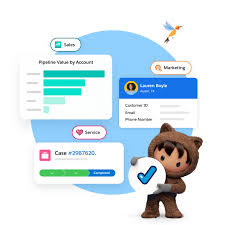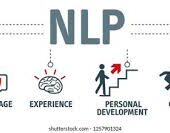The cornerstone of upcoming customer service success lies in grasping the contemporary expectations of customers—an experience that is both personalized and interconnected. However, the challenge is to maintain a delicate equilibrium between productivity and cost efficiency without compromising the quality of service. The solution lies in adeptly harnessing the appropriate technology. Looking forward to the future of customer service, generative AI emerges as a pivotal player, offering cost-effective approaches to meet the ever-evolving expectations of customers. Here are three emerging trends to contemplate as you formulate your customer service strategy for 2024.
Embracing AI as an Opportunity, Not a Threat: Current research indicates that 45% of decision-makers in the service industry are presently utilizing AI, marking a substantial increase from 24% in 2020. While AI is becoming an integral part of customer service toolkits, more than half of decision-makers have not yet adopted it. Concerns include potential skill gaps, reservations about trust and reliability, and fears of substantial infrastructure investments. It is imperative for companies to exercise caution when deploying powerful technologies like AI. However, those who have embraced AI are already reaping the benefits of enhanced connection, information dissemination, and enrichment in every aspect of customer service. To leverage AI in enhancing service organizations, platforms like Service Cloud Unlimited+ provide comprehensive solutions. The latest training strategies are crucial in transforming service professionals into high-value agents, ensuring a secure and collaborative approach to exceptional customer service.
Advancements in Field Service for Frontline Workers: A majority (65%) of mobile workers feel the weight of customer expectations, with 82% struggling to balance speed and quality in field service. Attracting and retaining frontline workers becomes challenging, underscoring the importance of field service management software. High-performing organizations recognize job satisfaction as a major benefit of such software, aiding in tasks traditionally considered time-consuming. AI contributes to the future of customer service in various ways, including predictive maintenance, automation of work summaries, and expanding options for self-service. Integrating AI into frontline workers’ tools with generative responses and work summaries enhances their proactive and productive capabilities.
Revenue Generation at the Core of Customer Service: The convergence of sales, service, and commerce continues, driven by AI-driven cross-selling that transforms customer service into a profit center. Forward-thinking organizations pursue an end-to-end view of the customer journey, creating a continuous feedback loop. Communication channels, such as Apple Messages for Business in Service Cloud, facilitate seamless customer interaction. In 2024, service leaders can expect expanded access to customer information, shared goals across functions, and AI-powered insights driving proactive assistance and relationship-building. Metrics traditionally associated with sales and customer service will converge, focusing on customer satisfaction, loyalty, and overall lifetime value. Consolidating tech investments through unified platforms enhances communication and data sharing among departments.
2024 Outlook for Customer Service
In constructing your customer service strategy for 2024, the key is to amalgamate data, unify the customer experience, and equip service teams to meet changing expectations while serving business needs. The mission remains to embrace the future of customer service by combining people, technology, and processes for faster, more effective service at scale, with AI playing a pivotal role at every step. The future of customer service commences now.













